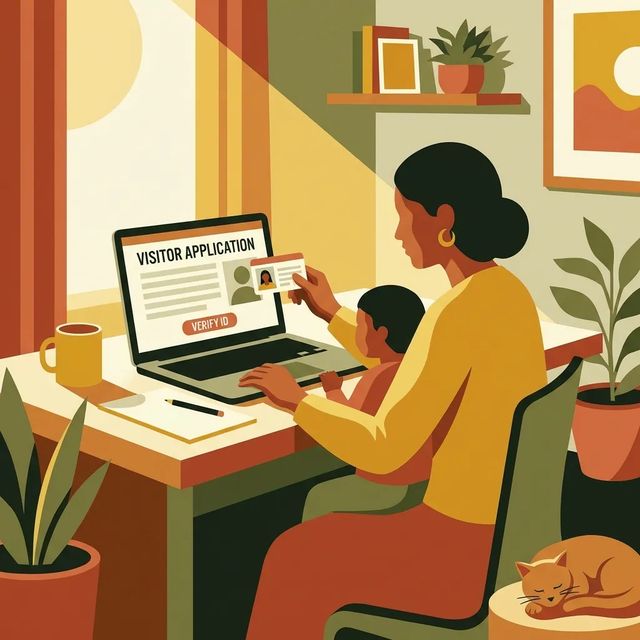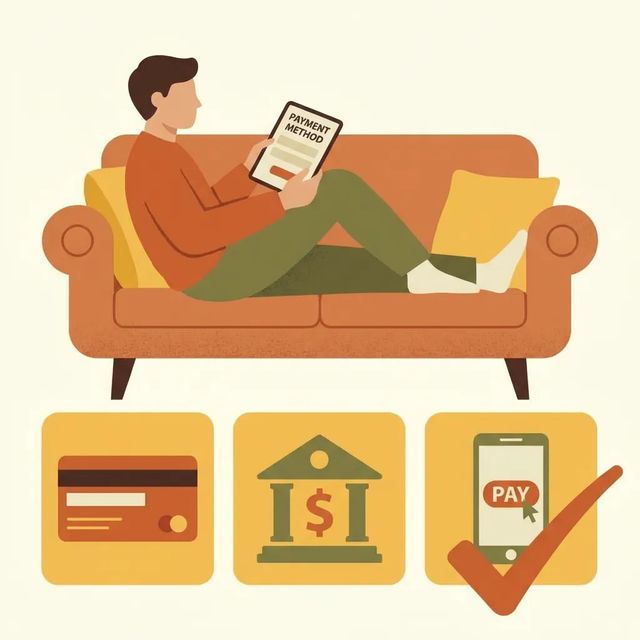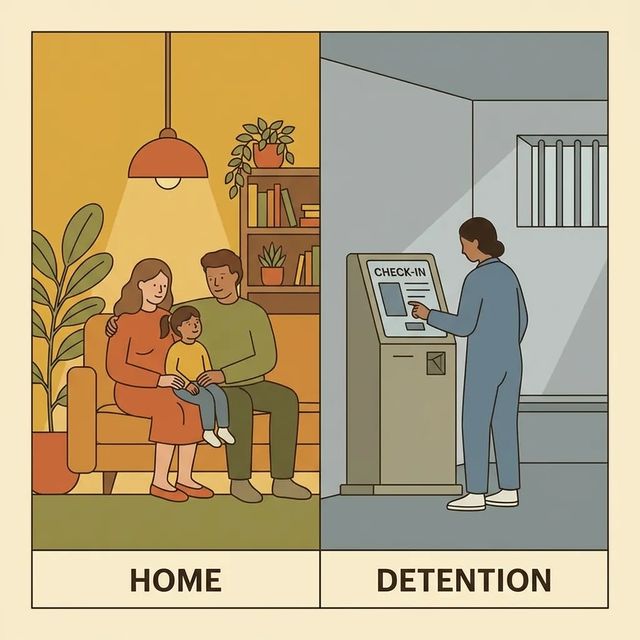Virginia Corrections Facility For Women, VA
Need to reach someone at Virginia Corrections Facility For Women? Look up an inmate, send messages or mail, add commissary funds, or schedule a visit.
Explore
Find an Inmate at Virginia Corrections Facility For Women, VA
Search for a loved one and send messages and photos in minutes.

Guides for This Facility

How to Schedule Your First Visit at a VADOC Facility (step-by-step)
Visiting someone at a VADOC facility? Two steps: get approved first, then schedule your visit online.
Read Guide
Sending Money to an Inmate at VCFW: JPay Fees and Options Compared
Want to add money for someone at VCFW? Stick with the approved JPay options—not the facility mailbox. Here's a clear breakdown of how to send funds, what to expect for timing, and how to keep fees as low as possible.
Read Guide
What You Need to Know About Phone Calls from Virginia Corrections Facility For Women
Staying in touch by phone? A few system rules can make the difference between smooth calls and constant frustration. Here's how calling works at Virginia Corrections Facility For Women — time limits, monitoring, and what can get phone privileges revoked.
Read GuideAt a Glance
Visitation
- All visitors (adult and minor) must submit the appropriate visitor application online for Central Visitation Unit approval before visiting.
- As of June 1, 2023 visitors are no longer required to be on an inmate's approved visiting list to be approved for in-person visitation.
- Visitor approvals expire three years after approval and should be renewed at least 45 days before expiration for in-state visitors and 90 days before expiration for out-of-state visitors.
Communication
- The VADOC inmate phone system at this facility is operated through ConnectNetwork by Global Tel*Link; all calls are recorded and monitored except properly verified attorney calls.
- Phone calls are limited to 20 minutes to allow fair use of the phones.
- Inmates may have an approved call list of up to 15 phone numbers; recipients may decline collect or debit calls.
Mail & Letters
- Senders must include the inmate's full name, seven-digit state ID number, the facility name, and the facility address/ZIP on mail.
- Letters, greeting cards, postcards, and appropriate photos are accepted for delivery.
- All incoming general correspondence mail will be photocopied and only the photocopies will be delivered to the inmate.
Sending Commissary
- Do not mail money directly to the facility; mailed money orders must be sent to JPay’s lockbox for processing.
- Funds from mailed money orders are available within three business days after JPay receives them.
- JPay provides phone support for payments at 1 (800) 574-5729.
Facility Info
- The facility follows VADOC Operating Procedure 851.1 (Visiting Privileges), effective March 1, 2025.
- Visitors with a medical condition that prevents use of the electronic scanner must bring medical documentation and will be offered an alternate search procedure.
- Visitors should arrive one hour before their scheduled in-person visit for security screening, and no food or drinks are allowed inside.
Based on official sources and community feedback.Learn how we verify
Topic Overviews
Visitation
Visiting at Virginia Corrections Facility For Women (VCFW) starts with an online visitor application reviewed by the Central Visitation Unit. Both adults and minors need approval before scheduling an in-person visit, and out-of-state applications may take longer. Approvals last three years—renew at least 45 days before expiration if you're in-state, or 90 days if out-of-state. Since June 1, 2023, you no longer need to be on an inmate's approved visiting list, though facility scheduling rules still apply and procedures can change. Arrive one hour early for screening. Bring a valid photo ID that matches your application, dress conservatively (neck to kneecaps, underwear and footwear required), and leave watches or wearable tech behind. No food or drinks allowed. Medical and service-animal accommodations can be arranged with advance documentation and approval. Unit-specific updates may cancel in-person or video visits without much notice.
Read full guideCommunication
Phone service at Virginia Corrections Facility for Women runs through ConnectNetwork by Global Tel*Link. Calls are recorded and monitored—except properly verified attorney calls. Each call is limited to 20 minutes to keep phone access fair, and inmates can maintain an approved call list of up to 15 numbers. If you receive collect or debit calls, you can decline them. Video visitation is also available with separate rules. Visitors 18 and older must register with a government-issued photo ID, follow scheduling windows, meet dress-code requirements, and pay vendor fees for at-home or kiosk sessions. At-home video visits work on computers, tablets, and Android smartphones. iPhones and iPads aren't compatible for video—only for scheduling. Set up and verify your vendor account before your first session. For billing or technical issues, contact the vendor directly, not facility staff.
Read full guideMail & Letters
Virginia Corrections Facility For Women scans all incoming personal mail and delivers only photocopies—originals are shredded after processing. Keep letters brief: each mailing can include up to three 8.5"×11" black-and-white pages (front and back). Write the inmate's full name and seven-digit state ID number on every piece of mail, along with the full facility name and address. Letters, greeting cards, postcards, and appropriate photographs are accepted. Photos get scanned too, and the physical originals are destroyed after processing.
Read full guideSending Commissary
Send money to someone at Virginia Corrections Facility For Women through JPay. Don't mail money directly to the facility—money orders need to go to JPay's lockbox for processing. Once JPay receives a mailed money order, funds typically post within three business days. You can also deposit online or by phone. JPay's payment support line is 1 (800) 574-5729. Deposit fees vary based on the amount and payment method, so check JPay's fee schedule before sending funds. Always include the inmate's full name and ID when making a deposit. If a deposit seems missing, contact the vendor.
Read full guideCommon Questions
Showing 6 of 16Can I bring a service or guide animal when visiting at VCFW?
Service or guide animals may be permitted for visitation with prior facility approval. Contact the facility ahead of time to arrange the accommodation and get any required approvals.
VisitationWhat if I cannot use the electronic scanner for medical reasons during a visit?
Bring medical documentation if pregnancy or a medical condition prevents you from using the electronic scanner. With proper documentation, staff will offer an alternate search procedure.
VisitationCan my scheduled visit be canceled for my loved one or their housing unit?
Yes. Facility-specific updates can cancel both in-person and video visits for certain housing units or buildings, and schedules can change, so confirm before you travel.
VisitationHow many numbers can an inmate at Virginia Corrections Facility For Women have on their approved call list?
An inmate may have up to 15 phone numbers on their approved call list.
CommunicationAre inmate phone calls recorded at Virginia Corrections Facility For Women?
Yes. Calls are recorded and monitored, except for properly verified attorney calls.
CommunicationHow long can an inmate's phone call last at Virginia Corrections Facility For Women?
Phone calls are limited to 20 minutes to allow fair use of the phones.
CommunicationMore Guides
Ready to Connect?
Search for your loved one to start communicating today
Did You Know?
Here's what you need to know about visiting Virginia Corrections Facility For Women. The facility follows VADOC Operating Procedure 851.1 (Visiting Privileges), effective March 1, 2025.
This guide is compiled from official facility documentation and community feedback. Learn how we verify
